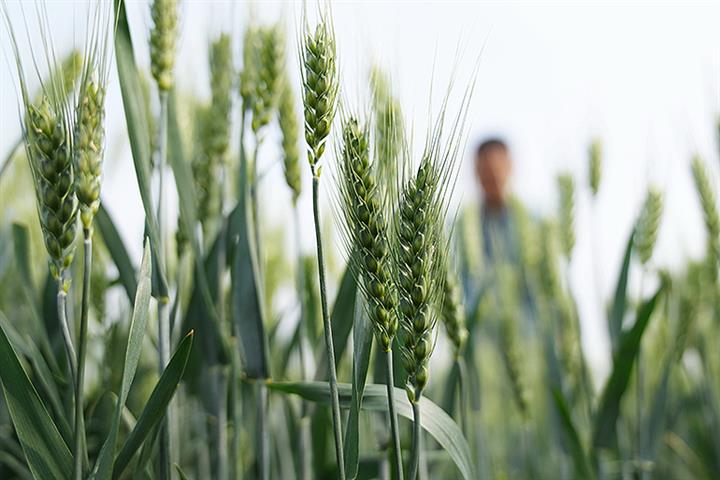 Reaping Green Wheat for Animal Feed Is Unlikely to Affect China's Food Security, Researcher Says
Reaping Green Wheat for Animal Feed Is Unlikely to Affect China's Food Security, Researcher Says(Yicai Global) May 12 -- The practice of harvesting wheat before it is ready for use in animal fodder has been on the rise this year in China as animal husbandry firms seek local alternatives amid soaring transport costs and surging global grain prices, but there is no cause for alarm as the proportion of the wheat harvest used as feed is small, a researcher told Yicai Global.
Although more immature wheat is being used to feed livestock this year than in previous years, it won’t affect overall wheat production because only a small amount is used as fodder, Jiang Yan, a researcher at Bric Agriculture Database, said in response to a recent online video of green wheat fields being torn down that sparked concerns among the public about food security.
“Using unripe wheat for animal feed is not new, but I didn’t expect it to draw so much attention this year,” said Zhao Zhongyuan, a wheat farmer based in the country’s grain heartland of central Henan province. He sold green wheat to a nearby large cattle and sheep farm because the price of existing foodstuffs, such as pulp and corn, has risen so high.
The recent Covid-19 outbreaks have blocked transport routes, making it more difficult and much more expensive for companies to bring in fodder from other places, Zhao said. Thus livestock breeders are turning to buying unripe wheat in places near them.
Using immature wheat as feed is probably due to the late planting this year, wheat seedlings not growing well and high production costs, said Zhang Zhixian, deputy director of China Grain Yida Research Institute.
Wheat is China’s second most important crop after rice as a source of food, so the market is especially sensitive, Jiang said. The country’s grain inventory is low as it has been releasing its reserves in recent years, and global wheat supplies this year look tight amid the Russia-Ukraine conflict and drought in India, all major producers. These factors are all stoking market concerns about food security, he added.
The Ministry of Agriculture and Rural Affairs has been paying close attention to the matter. Local governments were recently instructed to look into any irregular harvesting of the wheat crop and to punish those involved.
Editor: Kim Taylor